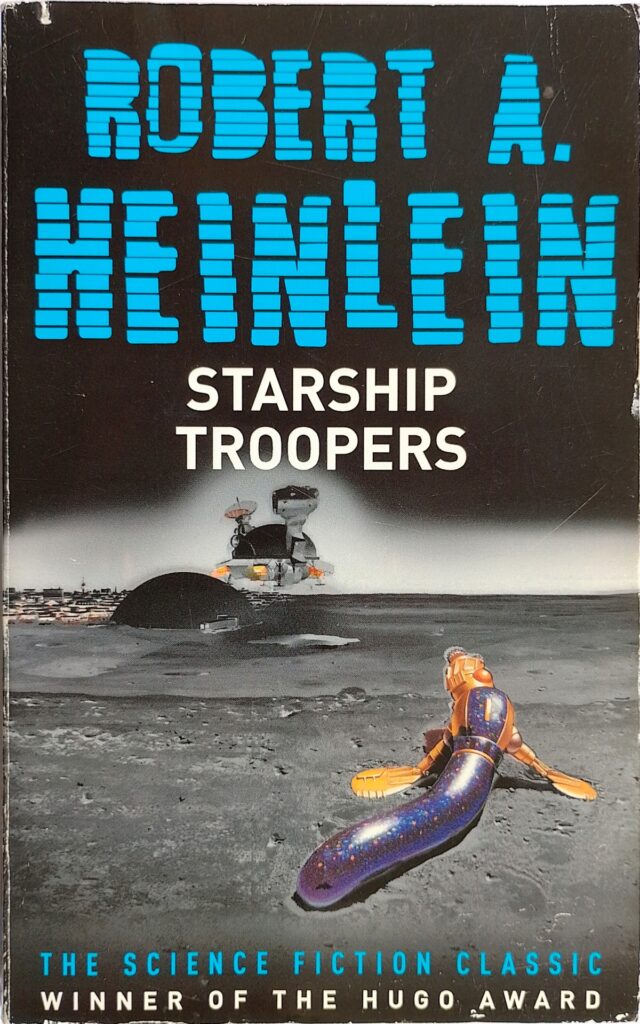First published 1959. Hodder and Stoughton, paperback, 2005, pp 223, c.83,000 words.
This book opened the field of military science fiction. It may not have been the first, but it was the first to be highly successful. The story opens with a brutal battle, human soldiers are launched from a spaceship with the intent of intimidating the population of an alien planet, but not destroying it. After that scene, the story steps back and concerns a young man, Johnnie, who volunteers for the Earth’s army and undergoes its demanding training. It is set sometime in the future when Earth is at war with an alien race of intelligent hive-insect creatures. With only minor modifications, it could be set anytime as it focuses on the evolving character of the protagonist. There are some very imaginative technologies deployed to help the soldiers perform, but war is a bloody business in whatever age. The alien species described are well developed and distinctly non-human.
As Heinlein had volunteered for and served in the US Navy, he knew all about military service and the practices required to train men to fight successfully. The training course described and the characters of the trainers have the ring of verisimilitude.
Considerable thought has been given to the politics of Earth, and mostly this is constructed as a right-wing, somewhat libertarian world, but not entirely so. In the future presented here, China has taken over as the world government after the US and Europe had fallen into anarchy and irrationality for which hippies and liberals seem to be to blame. Only after China’s rise to dominance has law and order been restored. To become a citizen with the right to vote people have to serve a term in the military. This is the case for both men and women, and one of the protagonist’s female school friends signs on to become a spaceship pilot (women make the best pilots, apparently.) As Johnnie’s best friend is also signing up, he does so too, much to the disgust of his parents. His father is a successful businessman and would like his son to go to university and then join his business.
Citizenship lures far more candidates for the military than they need, so part of the recruitment and initial training is to put off as many as possible. The military recruitment people decide that Johnnie is not suited to be a pilot and he ends up joining as an army grunt. Although he is presented initially as an indecisive character, somehow he makes it through, toughening up in the process. Again Heinlein’s military experience shows as this character development seems plausible. The bonding of recruits in the face of adversity and the motivation of not letting the team down drive Johnnie on. The characters of the trainers and of close comrades are given depth too.
Amongst the species at war, only humans value their own, which is considered as both a weakness and a strength [p188]. However, in this book’s view, ultimately the only right is might. While this book lauds many right-wing favoured ideas from corporal punishment to the death penalty, there are less dogmatic elements, such as the acceptance of women in working roles at the same level as men, even if not in the same teams. Also there is no element of racism (except perhaps directed at those aliens).
Heinlein writes an absorbing story with well-constructed characters, settings, and set pieces. Enjoyment of the book will depend on the reader’s stomach for visceral military activity and at least tolerance for some of the views expressed.
© William John Graham, December 2022

